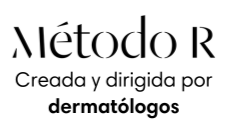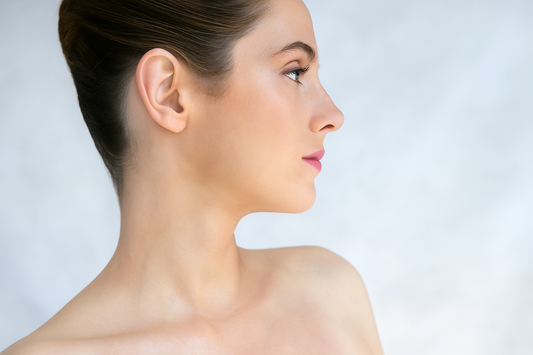Vitamin A or Retinol is on everyone's lips but what do we know about it? We answer all the questions that arise when you decide to include this cosmetic active ingredient in your routine.
Should Vitamin A or Retinol be used daily to get results?
The goal of any product with retinol or vitamin A derivative is daily use, but depending on the type of skin and tolerance to the irritation it produces, this is not always possible.
At Method R we are aware that a product that can irritate tends to raise doubts. Therefore, our products use retinyl palmitate, the least irritating form of vitamin A, which when encapsulated multiplies its benefits and allows it to be used every night or on alternate days.
Are retinoids photosensitive?
Many people worry that using retinoids will make their skin more sensitive to the sun, and they stop using it in the summer. It is a myth. Topical retinoids have been studied extensively and have been shown to not increase the risk of sunburn.
What does happen is that they degrade in the sun and are less effective. That is why they are sold in opaque containers and we recommend that they be used at night.
In addition, we always insist on the use of photoprotection during the day. That's simply to protect the skin barrier and to avoid undoing all the repair work the retinoids have been doing overnight.
Will higher percentages of stronger retinoids give me better, faster results?
There are as many skin types as there are people in the world and tolerance to retinoids is varied.
When you introduce retinoids into your routine, the so-called “retinization” effect occurs, a process by which the skin progressively gets used to the active ingredient. Good tolerance allows you to be consistent when using a cosmetic and that in the long term will provide better results.
Taking care of your skin is a long-distance race, not a marathon.
Do retinoids thin my skin?
No, on the contrary. Retinoids increase the thickness of the epidermis and make the most superficial layer - stratum corneum - more compact and smooth. That's why it can give the sensation that the skin is thinner.
Do retinoids exfoliate the skin?
Neither! Retinoids accelerate cell renewal, preventing the breakdown of collagen.
There are other types of cosmetic ingredients such as alpha-hydroxy acids that do produce a chemical exfoliation or products such as our physical exfoliant with micro-particles. However, exfoliants are responsible for eliminating “old” cells while retinoids are responsible for producing new ones.
Are the results immediate?
Error, retinoids They do not work miracles nor are they a quick solution. They can take up to 6 months to produce the best results. You may notice a difference, for example in acne, at 12 weeks, but sun damage and other signs of aging may take longer to show improvement.




